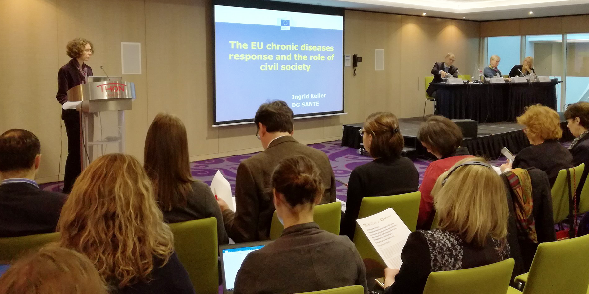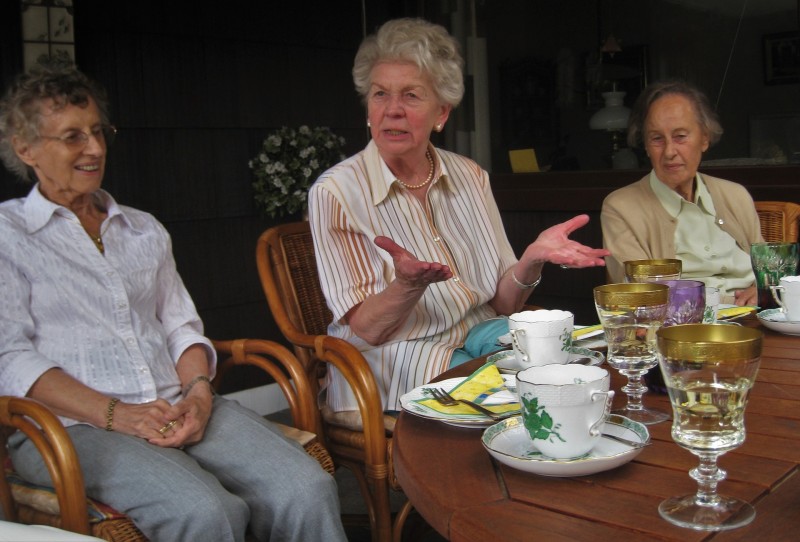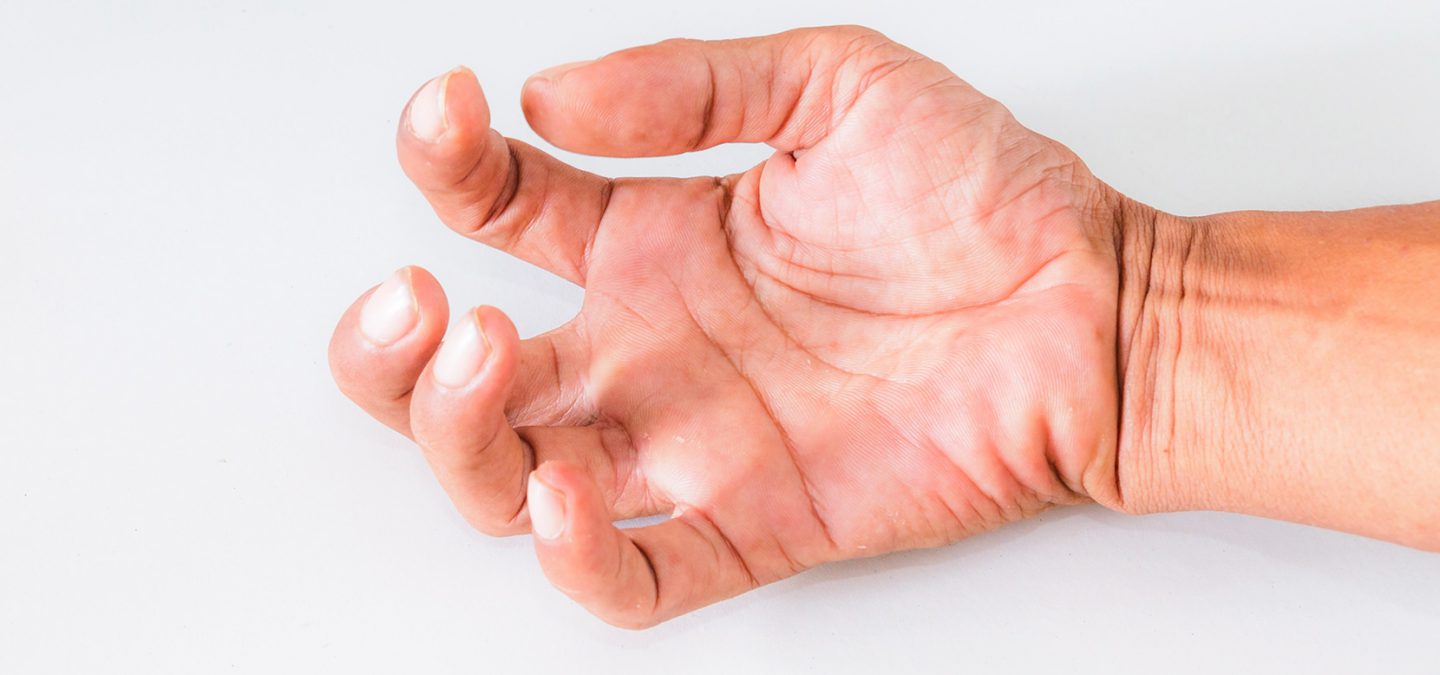
Jan 10, 2017
Published on ncdalliance.org
Brussels, Belgium – On the 12th and 13th of December 2016, the NCD Alliance and the European Chronic Disease Alliance (ECDA) co-organised a European meeting on the role of civil society in the regional response to NCDs. The meeting, co-sponsored by the World Health Organisation, convened NCD Civil Society Organisations (CSOs) in the region and brought together 67 participants from 22 countries across Europe. It aimed to share experiences, strengthen networks and increase capacity to drive advocacy, policy and accountability as well as to support implementation of the 2016-2025 WHO European Action Plan for the Prevention and Control of NCDs and other regional NCD priorities. (more…)

Jan 5, 2017
Published on www.csp.org.uk
Physiotherapists in North Devon have helped develop a free online guide to help carers, clinicians and therapists find suitable apps for neuro rehabilitation.
The mytherapy website was created by the stroke and brain injury team at Northern Devon Healthcare NHS Trust.

Image source: https://www.my-therappy.co.uk/
The team, including CSP members Emma Cork and Louise Holmes, has been using apps as part of their assessment and treatment for more than four years. The new website is a toolkit for stroke patients and clinicians of apps they have found to work well. (more…)

Jan 3, 2017
Leveraging existing relationships with friends and family may be a more effective way to improve patients’ health and encourage new healthy habits and behaviors than increasing interactions with physicians or other clinicians. In a new perspective published by the New England Journal of Medicine, Penn Medicine behavioral economists suggest a five-step ladder to effectively engineering social engagements that promote health and to test their acceptability and effectiveness. (more…)

Jan 3, 2017

Image: pixabay.com
Frequent sauna bathing may protect men against dementia, Finnish study suggests.
Frequent sauna bathing can reduce the risk of dementia, according to a recent study carried out at the University of Eastern Finland. In a 20-year follow-up, men taking a sauna 4-7 times a week were 66% less likely to be diagnosed with dementia than those taking a sauna once a week. The association between sauna bathing and dementia risk has not been previously investigated. (more…)

Dec 29, 2016
By Teresa Dumain, first published here
Women are at greater risk for stroke than men, but these simple steps can lower your risk.
Midlife women are twice as likely as men to have strokes, an alarming fact in and of itself. But what’s even more alarming is that if you crunch the numbers, it just doesn’t make any sense. Men smoke more, drink more, and see their doctors less—probably to avoid confessing their sins. Cigarettes and alcohol up the risk of stroke, yet each year, about 55,000 more women than men suffer from them. (more…)

Dec 27, 2016
By Susan Young | Posted: December 27, 2016 on Healthcare Communication News

Image: pixabay.com
People are using technology to enhance their overall health.
Effective digital communicators have a deep understanding of where their prospects are spending time, and how best to reach them.
They’re quite busy on computers, tablets and mobile devices, according to this infographic. What exactly are folks looking at online? (more…)

Dec 27, 2016
Written by Ana Sandoiu
First published here
With their rich content of fiber, low saturated fats, and high levels of antioxidants, nuts are one of the healthiest and most nutritious snacks out there. New research shows that the health benefits of nuts may be even more wide-ranging than we think.
Nuts are packed with nutritional value. Rich in unsaturated fatty acids, fiber, vitamins, minerals, and various antioxidants, nuts have earned their spot in the “superfood” category. (more…)

Dec 24, 2016
UCLA researchers have shown that the brain can be repaired — and brain function can be recovered — after a stroke in animals. The discovery could have important implications for treating a mind-robbing condition known as a white matter stroke, a major cause of dementia.
White matter stroke is a type of ischemic stroke, in which a blood vessel carrying oxygen to the brain is blocked. Unlike large artery blockages or transient ischemic attacks, individual white matter strokes, which occur in tiny blood vessels deep within the brain, typically go unnoticed but accumulate over time. They accelerate Alzheimer’s disease due to damage done to areas of the brain involved in memory, planning, walking and problem-solving. (more…)

Dec 22, 2016
The Merz / SAFE post-stroke spasticity project launched a web site lifewithspasticity.com aimed to create an educational space for raising awareness of the treatment options available to stroke survivors experiencing post-stroke spasticity. The project is managed by the Stroke Association on behalf of Stroke Alliance for Europe (SAFE) and the duration of this project is 12 months, ending in the spring of 2017.
The rational for the project was that everyone who has had a stroke should have the opportunity to make the best possible recovery. It is estimated that up to a third of stroke survivors experience spasticity, however rehabilitation is only given to a small percentage of people who could benefit. Spasticity affects up to a third of stroke survivors and can leave those with the condition dependent on others to carry out the most basic, everyday tasks, such as getting dressed and eating. Studies have shown that around 70% of stroke survivors living with spasticity say it has a major impact on their life. (more…)

Dec 21, 2016
The source: Adapted press release from the European Commission
“Health at a Glance: Europe 2016” European Commission/OECD joint report shows that policies that aim at promoting good health and preventing diseases as well as more effective healthcare could save lives and billions of euros in the European Union.

Image: pixabay.com
Life expectancy now exceeds 80 years in most EU countries reveals “Health at a Glance: Europe 2016”, a European Commission/OECD joint report. However, this record-high life expectancy is not always matched by healthy life years. Around 50 million people in the EU suffer from several chronic diseases, and more than half a million people of working age die from them every year, representing an annual cost of some 115 billion EUR for EU economies. For more key figures see infograph. (more…)

















